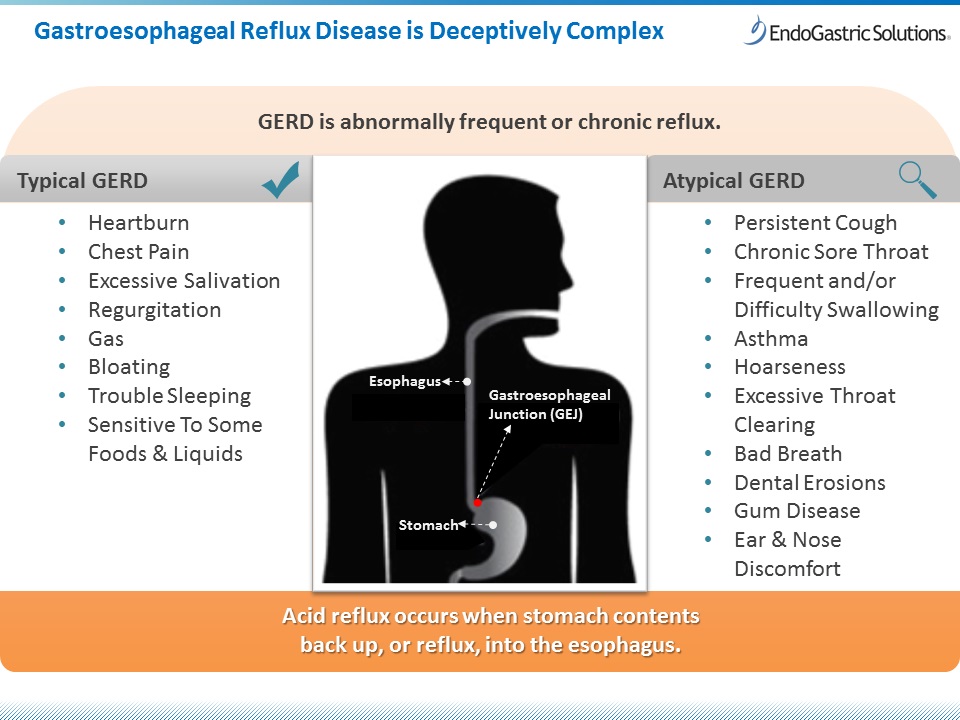GERD can look and feel different for each patient. Although chronic reflux can entail a wide range of symptoms, they can be broadly grouped as typical or atypical depending on their severity.
Mild sufferers may experience heartburn and regurgitation on occasion, perhaps after indulging in a heavy meal or greasy or acidic foods. Changes to diet are sometimes sufficient to alleviate these symptoms and control mild acid reflux. Severe chronic GERD sufferers can experience symptoms as often as several times a week or even daily.
Typical GERD Symptoms
Contrary to popular belief, you don’t always experience heartburn when you have GERD. Although this is the most common symptom, it is not a guaranteed warning sign of GERD — nor is the absence of heartburn enough to rule out GERD. People managing GERD will often blame acid reflux for some or all of their symptoms. However, there are other stomach fluids besides acid that can reflux and cause discomfort and damage. In fact, non-acid reflux carries enormous risk to the esophagus, even if they aren’t as obvious a sign of GERD.
Typical or common GERD symptoms include the following:
- Heartburn
- Difficulty swallowing
- Excessive salivation
- Regurgitation
- Gas and bloating
- Pain or discomfort in the chest
- Intolerance of certain foods and liquids
- Bad breath or a sour taste in the mouth
Atypical GERD Symptoms
Atypical or other less common GERD symptoms include the following:
- Hoarseness or laryngitis
- Frequent swallowing
- Asthma or asthma-like symptoms
- Excessive clearing of the throat
- Chronic dry, irritated, or sore throat
- Persistent cough
- Burning in the mouth or throat (acid taste in the mouth)
- Dental erosions or therapy-resistant gum disease or inflammation
- Discomfort in the ears and nose
- Trouble sleeping
[one-half-first]![]() Download the English Brochure[/one-half-first]
Download the English Brochure[/one-half-first]
[one-half]![]() Download the Spanish Brochure[/one-half]
Download the Spanish Brochure[/one-half]
Having heartburn or reflux from time to time is normal. Reflux that becomes chronic and impacts your lifestyle is not normal.
If you suffer reflux symptoms more than twice a week, you may have GERD. Take the GERD-Health Related Quality of Life (GERD-HRQL) survey if you suspect a problem and bring the results to your doctor for a GERD evaluation.


